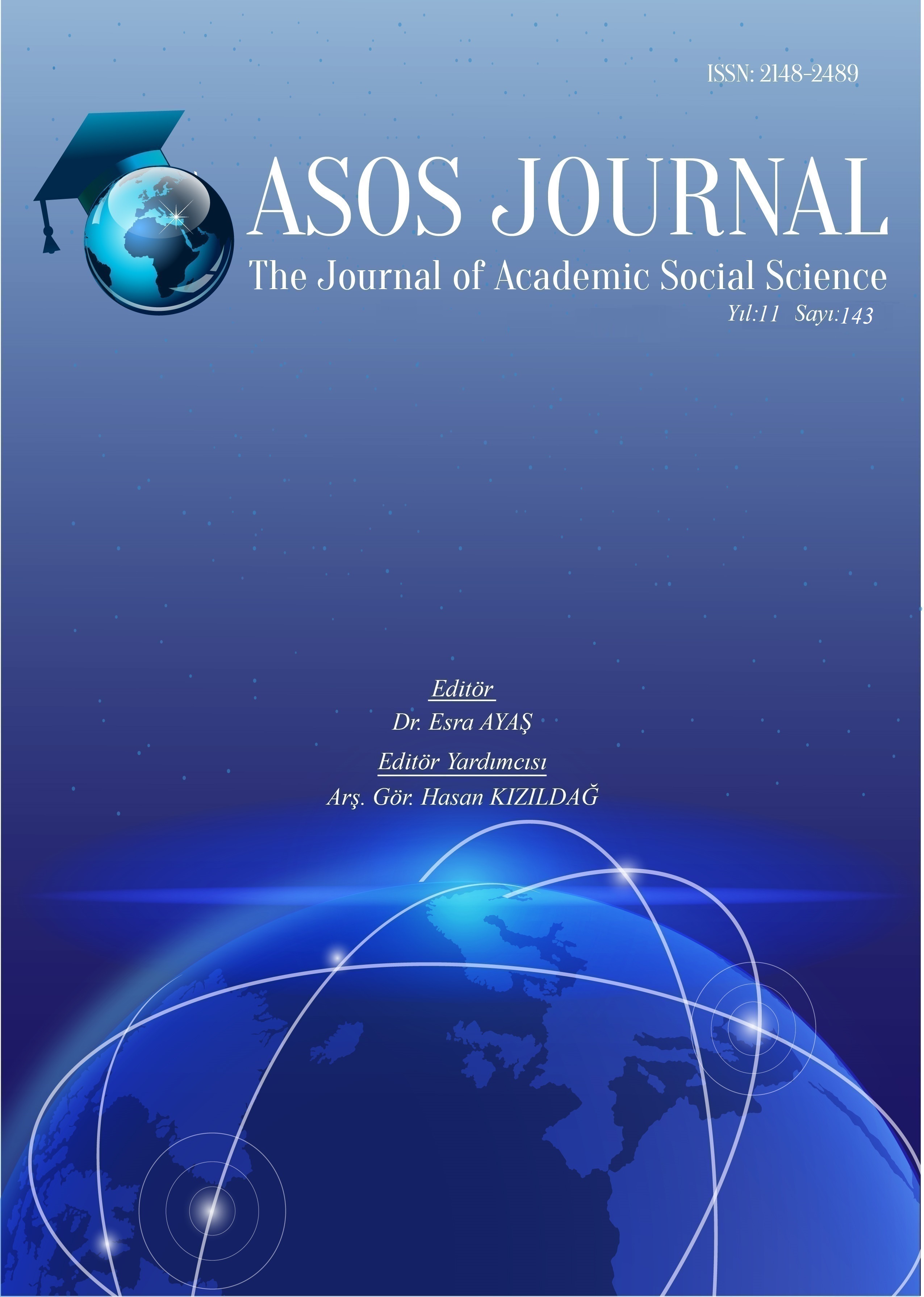MEDYA VE İLETİŞİM YÖNETİMİ YÜKSEK LİSANS ÖĞRENCİLERİNİN “MEDYA PSİKOLOJİSİ” DERSİNDE İŞLENEN KONULARI ALGILAMA BİÇİMİ
Author :
Abstract
Medyanın dördüncü kuvvet olarak varlığı, sadece o toplumdaki iletişim biçimlerini ve bunun etkilerini/yansımalarını göstermez; aynı zamanda medyanın iç dinamikleri sayesinde o süreci nasıl yönettiğini de açıklar. Bir bakıma, medyanın iç dinamikleri -yayın politikası, haberleri/gelişmeleri sunuş şekli, etik anlayışı ve kurumsal yapısı- sadece içsel bir gerçeklik olarak kalmaz; o özellikleri algı yönetimi, manipülasyon, çerçeveleme ve yönlendirme gibi “yapay” etkilerle seyirciye/okura da enjekte etmeye çalışır. Çünkü toplumun “ortak benliği”ni oluşturma veya yönlendirme işlevi günümüzde özellikle medyanın üstesinden gelebildiği bir hedeftir. İktidar, muhalefet, siyasi parti ve oluşumlar ile sivil toplum kuruluşları medyanın cezbedici etkisine sahip değildir. Hatta bu erkler medya sayesinde toplumu etkilemekte ve yönlendirmektedir. Dahası, tüm bu erkler var oluşlarını ve güçlerini medyaya borçludur. İşte medya psikolojisi, tüm bu süreçleri inceleyen, irdeleyen ve araştıran bir alandır. İletişim dünyasında kısa bir geçmişe sahip olan Medya Psikolojisi Türkiye’deki çok az sayıda üniversitede lisans veya yüksek lisans dersi olarak okutulmaktadır. Bu çalışma, İstanbul Yeni Yüzyıl Üniversitesi, Sosyal Bilimler Enstitüsü, Medya ve İletişim Yönetimi programı yüksek lisans öğrencilerinin aldığı Medya Psikolojisi dersinin nasıl algılandığını tespit etmek amacıyla yapılmıştır. Araştırma kapsamında, dersi alan 8 öğrencinin final sınavında yanıtladığı “Medya Psikolojisi dersinden dönem boyunca ne anladınız? 5-6 paragrafta tartışınız” sorusundan yola çıkılarak içerik ve söylem analizi gerçekleştirilmiştir.
Keywords
Abstract
The presence of media as the fourth estate not only shows the forms communication take place in a society and its effects/reflections, but also explains how media manages these processes as a result of its internal dynamics. These internal dynamics of the media, e.g. its editorial policies, the way it presents the news or developments, its sense of ethics or its institutional structure, do not remain only as an internal reality but also aims to inject these aspects to its audience through artificial means such as perception management, manipulation, framing and influence, as it is especially the media who is able to realize the goal of establishing and influencing the common consciousness of the society. Neither the government nor the opposition or political parties and organizations as well as non-governmental organizations have the same appeal as the media. In fact, these powers influence and direct the society using the media. Moreover, all these powers owe their existence and power to the media. Indeed, media psychology is the field which studies, analyzes and scrutinizes all these processes. With a short history in the field of communications, media psychology is taught in very few universities both at undergraduate and graduate level in Turkey. This study has been carried out to measure how the Media Psychology course is perceived by Istanbul Yeni Yüzyıl University, Social Sciences Institute, Media and Communication Management program graduate students. Within the scope of the study, 8 students answered the following question on their final exam: “What did you understand during the term from the ‘Media Psychology course’? Discuss in 5-6 paragraphs", on which content and discourse analysis have been carried out.





